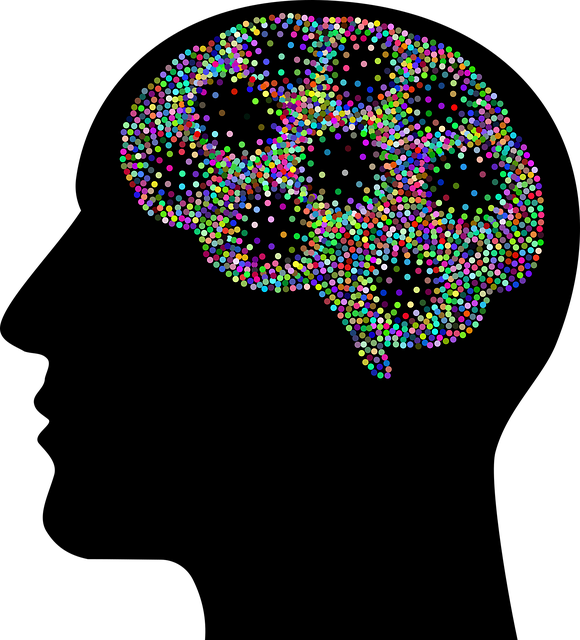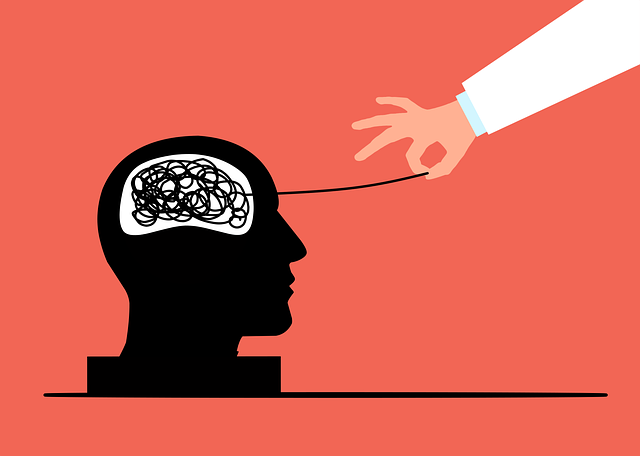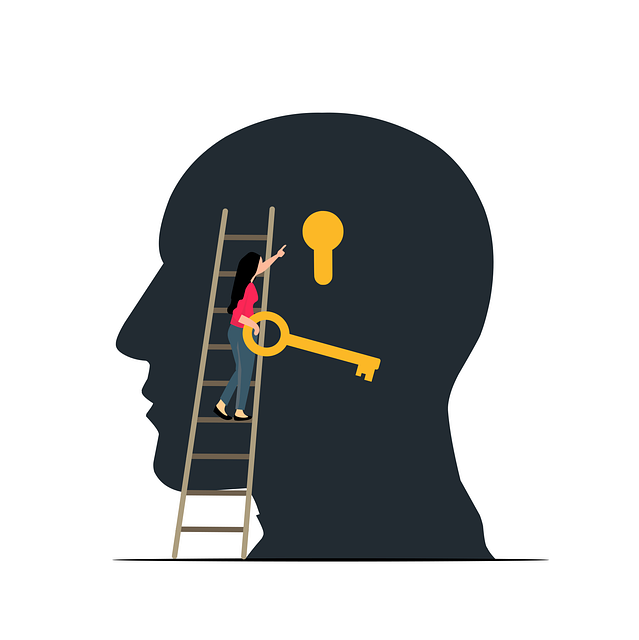Diagnosing mental illness accurately is challenging due to varied symptoms, cultural differences, comorbidities, and subjective distress. Techniques like detailed assessments, clinical interviews, and standardized questionnaires, alongside innovative therapies like Golden Pain Management Therapy (GPMT), improve accuracy. GPMT cultivates inner strength and compassion, aiding in understanding complex emotions for effective treatment plans. Continuous training in GPMT, empathy-building, and social skills training is crucial for healthcare professionals to diagnose conditions like anxiety and mood disorders precisely, leading to tailored, data-driven treatment plans.
Mental illness diagnosis accuracy has long been a contentious issue, with many challenges impacting patient care. This article explores targeted efforts to improve diagnostic precision, delving into key areas such as understanding inherent complexities, leveraging innovative therapies like Golden Pain Management Therapy, and enhancing traditional tools and training for healthcare providers. Additionally, it highlights the importance of patient-centered approaches and support systems in fostering more accurate and compassionate mental health diagnoses.
- Understanding Mental Illness Diagnosis Challenges
- The Role of Golden Pain Management Therapy
- Enhancing Diagnostic Tools and Techniques
- Training and Education for Healthcare Professionals
- Patient-Centered Approach and Support Systems
Understanding Mental Illness Diagnosis Challenges

Diagnosing mental illness accurately can be a complex task due to the intricate nature and wide range of symptoms presented by individuals. Many factors contribute to this challenge, including cultural differences in expressing emotions, comorbidity of disorders, and the subjective experience of distress, which may vary from person to person. For instance, what one person describes as overwhelming anxiety might differ significantly from another’s interpretation of their symptoms. This complexity is further exacerbated by the vast array of mental health conditions currently recognized, each with its unique set of criteria for diagnosis.
To enhance diagnostic accuracy, healthcare professionals often employ various techniques such as in-depth assessments, clinical interviews, and standardized questionnaires. Incorporating therapeutic approaches like Golden Pain Management Therapy can also aid in unravelling complex emotional landscapes. By fostering inner strength development and compassion cultivation practices, individuals may gain a deeper understanding of their experiences, facilitating more precise diagnoses. These efforts collectively strive to move towards more effective mental health treatment plans, ensuring that those struggling receive the appropriate support and care they need.
The Role of Golden Pain Management Therapy

Golden Pain Management Therapy (GPMT) is revolutionizing mental health treatment by offering a nuanced approach to diagnosing and managing complex conditions. This therapeutic method goes beyond traditional talk therapy, integrating various evidence-based practices tailored to an individual’s unique needs. GPMT focuses on building empathy between patients and therapists, fostering a safe space for vulnerable individuals to express their experiences without fear of judgment. By utilizing innovative techniques such as Conflict Resolution Strategies and Social Skills Training, therapists aid clients in navigating interpersonal challenges and enhancing their overall well-being.
The effectiveness of GPMT lies in its holistic nature, addressing not only the symptoms but also the underlying causes of mental illness. Through structured programs that include specialized Empathy Building Strategies, patients learn to recognize and manage their emotions more effectively. This proactive approach not only improves diagnosis accuracy but also paves the way for long-term recovery by equipping individuals with essential coping mechanisms and social interaction skills.
Enhancing Diagnostic Tools and Techniques

The evolution of mental health diagnosis is an ongoing journey, with a primary focus on enhancing accuracy and effectiveness. One significant aspect of this endeavor is the continuous improvement of diagnostic tools and techniques. Mental wellness professionals are leveraging advanced technologies and innovative practices to refine the process. For instance, integrating Golden Pain Management Therapy into standard protocols offers a nuanced approach, allowing for more precise identification of underlying conditions. This therapy, coupled with data-driven analysis, enables healthcare providers to make informed decisions, ensuring personalized treatment plans.
Furthermore, the integration of Burnout Prevention Strategies for Healthcare Providers into clinical settings fosters a supportive environment. By prioritizing provider well-being, these strategies contribute to sustained attention and accuracy in diagnosis. Alongside, the Mental Wellness Podcast Series Production plays a crucial role in disseminating knowledge and raising awareness among both professionals and the general public. This multimedia approach complements traditional methods, encouraging open conversations about mental health, which is essential for accurate assessment and timely intervention. Additionally, Inner Strength Development programs empower individuals to understand their conditions better, facilitating a collaborative partnership with healthcare providers.
Training and Education for Healthcare Professionals

Healthcare professionals play a pivotal role in accurately diagnosing mental illnesses. To enhance their skills, continuous training and education are essential. Programs focusing on Golden Pain Management Therapy, for instance, can equip doctors and therapists with advanced techniques to identify subtle symptoms often associated with mental health conditions. Such therapies prioritize the patient’s overall well-being, fostering an environment conducive to open communication.
Beyond specialized treatments, building empathy is a powerful tool. Empathy Building Strategies incorporated into training sessions enable healthcare providers to connect with patients on a deeper level. Encouraging positive thinking and Social Skills Training can also improve diagnostic accuracy by promoting healthier relationships and better patient disclosures. These multifaceted approaches collectively contribute to more precise mental illness diagnoses, ultimately leading to more effective treatment plans.
Patient-Centered Approach and Support Systems

In improving mental illness diagnosis accuracy, adopting a patient-centered approach is paramount. This involves creating an environment where individuals feel safe and supported in discussing their experiences. By actively listening to patients’ concerns and incorporating their perspectives into the assessment process, healthcare providers can better understand complex symptoms that may otherwise be overlooked. A supportive system, encompassing both clinical professionals and peer networks, plays a crucial role in this approach. It facilitates open communication, encourages vulnerability, and promotes trust. This, in turn, enhances the accuracy of diagnoses, especially for conditions like anxiety and mood disorders, where symptoms can vary greatly between individuals.
Integrating Golden Pain Management Therapy as part of this patient-centered framework offers a promising avenue for mental health care. This therapeutic approach focuses on addressing underlying pain mechanisms, thereby not only providing anxiety relief but also improving overall mood management. By integrating such innovative practices alongside traditional assessment methods, mental health professionals can conduct more comprehensive risk assessments, ensuring more precise diagnoses and tailored treatment plans.
Mental illness diagnosis accuracy has long presented significant challenges, but through innovative approaches like Golden Pain Management Therapy, enhanced diagnostic tools, comprehensive training, patient-centered care, and robust support systems, we can improve overall mental healthcare. By integrating these strategies, healthcare professionals can navigate the complexities of mental illness more effectively, ensuring accurate diagnoses and improved patient outcomes.














